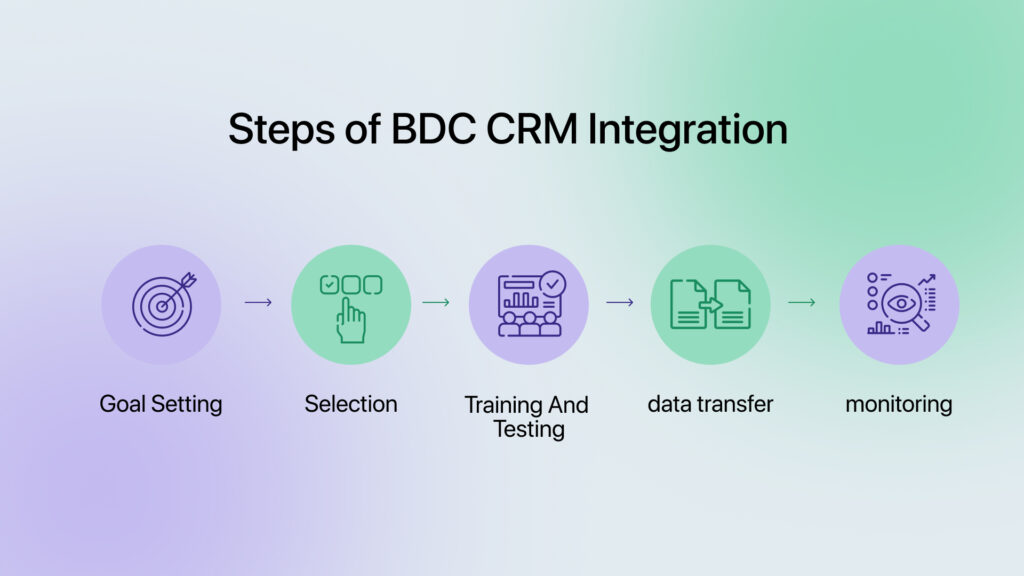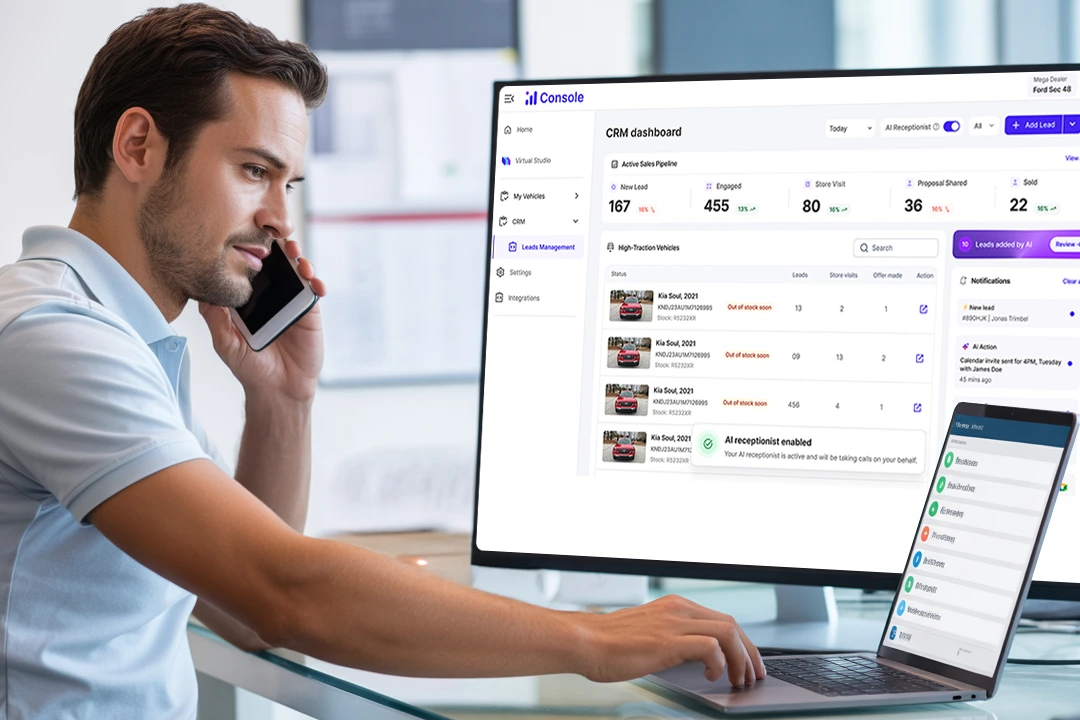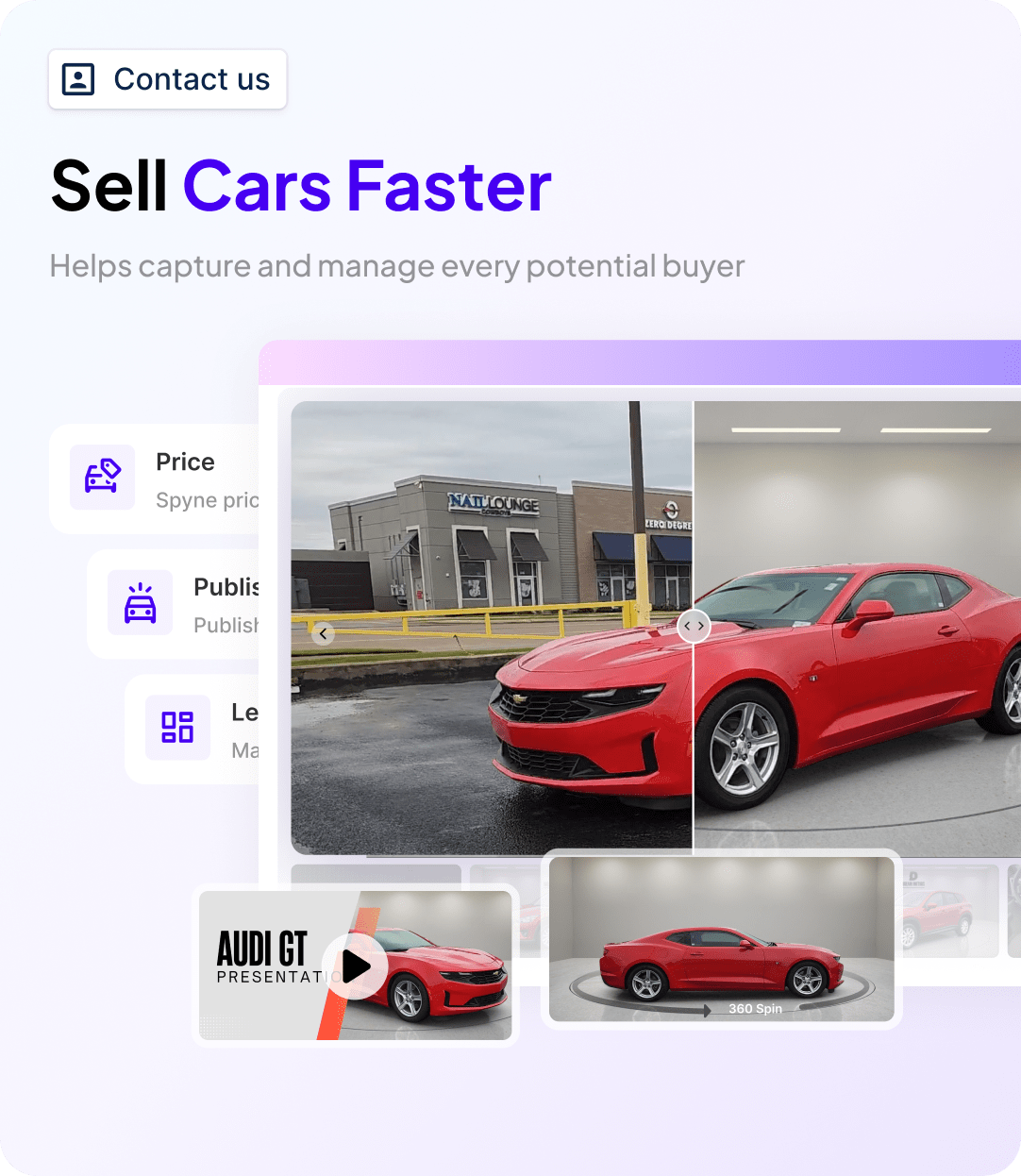In this highly competitive customer-centric world, automotive businesses need to understand their customers to provide superior and personalized services with the help of BDC CRM. A Business Development Center, or BDC, exists to fulfill this purpose of handling calls, managing customer interactions, and optimizing dealership workflows. To add a bonus to BDC processes, Customer Relationship Management (CRM) integrates with them, enhancing their efficiency.
In this blog, we will walk you through the role of BDC software, its integration process, and the future trends arising in this connectivity.
What is the Role of BDC CRM in Your Auto Business?
The BDC, or Business Development Center, refers to a centralized hub for managing leads, prospects, and customer interactions related to sales and service processes. The BDC CRM handles appointment scheduling, streamlines customer communications, sends follow-up messages, and builds strong relationships for enhanced sales growth. The role and importance of the automotive BDC process are as follows:
1. Lead Nurturing and Management
The BDC solutions, along with CRM integration, identify, capture, and nurture high-intent leads from various sources like call,m text, or showroom walk-ins. They build lead management strategies like targeted marketing campaigns, personalized offers, and referrals from existing customers, gaining loyalty and leading to conversion.
2. Deliver Follow-Up Messages to Set Appointments
The BDC CRM integration focuses on fostering long-term relationships with customers by sending them personalized follow-up and reminders, and offers based on their preferences. This ensures boosted customer satisfaction for repeated business, increases appointments, and test drive bookings.
3. Increase Sales and Revenue
One of the key roles of CRM BDC is to increase lead conversion rates and sales revenue by prioritizing hot leads, engaging customers in a superior way, and handling high volumes of calls with accurate responses to gain loyalty and encourage business growth. Dealerships must consider outsourced BDC vs in house BDC for taking over such tasks.
How CRM Tools Enhance the Potential of BDC Processes?
The best free CRM tools power BDC to improve dealership processes and drive revenue growth. They help in improving customer relationships, managing data, and making insightful decisions to drive operational efficiencies. Look at the potential and features of BDC CRM for your automotive business.
1. Automated Processes for Consistent Communication
The automotive CRM tools automate communication and customer service processes, freeing up the staff to focus on core revenue activities. These include following up with customers, setting appointments, and launching targeted campaigns for real-time engagement.
2. Reports and Analytics for Decision-Making
Car dealerships can track KPIs and make data-driven decisions through predictive analytics and reports. They provide insights into customer behavior and purchasing habits to deliver personalized services, enhancing their satisfaction level.
3. Centralized Database for Storing Information
Organizing and managing customer data becomes easy for car dealers through contact management software for car dealerships, providing them a centralized hub for storing information and making it accessible for all departments to reduce data silos.
4. Streamlines Operational Efficiency
The BDC CRM integration streamlines operations to reduce costs and increase productivity. Car dealerships can manage their pipeline and track customer interactions throughout the sales funnel from initial inquiry to final purchase.
5 Steps to Integrate BDC CRM for Your Car Dealership
Integrating the BDC process includes connecting the in house BDC with CRM tools for lead management and communication workflow. This integration provides a complete view of customer interactions by tracking them to enhance sales and marketing strategies. Though BDC CRM integration faces some challenges, like data migration or a complex learning process for employees, effective testing and data transfer strategies can overcome these issues. Here are some steps to execute this integration.
1. Define the CRM Requirements in Your BDC Process
Identify and define your virtual automotive BDC metrics, like conversion rates, lead volume, call drop rate, and CRM usage and follow-ups, to recognize how CRM tools can support these goals.
2. Choose the Right CRM Software and Integration Methods
Choose the right automotive CRM software that aligns with the goals of your BDC processes. Consider various integration methods, like built-in integration, API, or third-party integration with specific tools to facilitate this connectivity.
3. Provide Training and Conduct Testing
Encourage employees to follow automotive BDC tips and provide training sessions to employees on how to use the CRM system effectively for BDC processes. Conduct comprehensive testing to ensure smooth working and data flow.

4. Ensure Accurate and Secure Data Transfer
Automotive businesses need to make sure that updated and accurate data is transferred in the integration process, with limited access and end-to-end encryption for data security concerns.
5. Monitor Regularly to Track Performance
The service BDC should not be overlooked after crm integration; instead, businesses should track agent performance and customer interaction through automotive call monitoring software to identify any bottlenecks in the operations.
What are the Strategies to Optimize your BDC CRM?
Integrating BDC CRM is not a one-time process; instead, you need to optimize this integration to ensure smooth working. Here are a few strategies to follow to make the most of your CRM integration with the automotive BDC process.
1. Nurture Leads for More Conversions
Automate your lead management workflow with the CRM software. Capture and prioritize high-quality prospects for timely engagement and increased lead conversions.
2. Improve Communication Among Teams and Customers
Utilize CRM reports and analytics for understanding customer preferences and behavior to provide personalized services and instant responses to improve communication. Also, CRM data keeps everyone on the same page, hence encouraging collaboration among different departments of an organization.
3. Train BDC Staff for Enhanced Efficiency
Monitor operations to identify key improvement areas and train your staff on how to increase dealership BDC effectiveness by using the CRM tools wisely and improve engagement practices.
4. Manage the Dealership Sales Pipeline
Gain full visibility into your sales pipeline and track customer activity at each stage of the sales funnel to identify profitable opportunities and focus on converting them.
What are the Upcoming Trends in BDC CRM Integration?
Modern BDC CRM integrations use AI and automation to manage data, providing an enhanced customer experience. Car dealers need to stay updated with the latest technology and development to adopt the upcoming future trends. Here are a few trends for dealerships to stay ahead in the competition.
1. Use of Machine Learning and AI
Advanced CRM BDC provides human-like interactions, using machine learning and conversational AI, which analyzes the buyer’s intent and preferences to prioritize leads and focus on those that are most likely to convert.
2. Mobile Usage with Personalized Responses
As the use of mobiles is increasing day by day, dealerships are focusing on BDC CRM, which offers mobile compatibility to work on the go. With updated data and customer activity tracking, they can get insights to deliver personalized experiences.
3. Integration with Communication Platforms
In the modern automotive industry, CRM BDC software can be well integrated with dealership communication platforms like websites, social media, and text messaging, providing an omnichannel contact center to engage customers across various touchpoints.
4. Scalability and an Easy-to-Operate Interface
With CRM integration, the automotive BDC process will become capable enough to store high data volumes and scale as the business grows. Additionally, it will require minimal technical skills to operate for employees, making the learning curve steep.
5. 24/7 Virtual Communication Support
AI will make the communication process simpler with the help of chatbots and callbots, even after working hours, providing an automotive answering service for consistent communication support to customers.
How Does Spyne Help Dealerships with BDC CRM Integration?
Spyne offers a blend of AI and automation to provide solutions to automotive businesses, especially in the automotive industry. Spyne enables smooth BDC CRM integration, making your dealership responsive, efficient, and delivering personalized experiences to your customers. Here is how Spyne keeps you above all competitors.
1. Round-the-Clock Customer Engagement
Spyne provides an AI receptionist for car dealerships to provide accurate and real-time responses to customers to address their concerns by collecting basic information. We support multilingual responses to customers, avoiding the language barrier in your sales process.
2. Personalized Follow-up Messages
Using reports and analytics to get insights into customer preferences enables you to send personalized follow-up messages and reminders to customers through our automated lead follow up system for car dealerships.
3. Automated Workflow Operations
Our AI assistant saves your time and energy from taking over repetitive and time-consuming tasks like setting up sales or service appointments, sending reminders, or booking test drives, enabling your staff to focus on revenue-generating activities.
4. Smooth CRM System Integrations
Spyne’s automotive CRM integrates seamlessly with your existing tools of the dealership, like DMS, websites, and communication platforms, including texts and calls, for complete visibility into customer interactions and purchase history.
5. Scalable for Any Size Dealership
Spyne is a right fit for a dealership of any size, whether small or large. We scale as your business grows and handle your automotive fixed operations efficiently without the need to expand your staff.
6. Efficient Lead Management Processes
You don’t need to spend time identifying and prioritizing leads because we do it for you. Spyne offers AI lead scoring for car dealerships to prioritize hot leads and put efforts into converting them.
7. Increased Conversion Rates
Spyne helps you to deliver superior customer service, enhancing their satisfaction levels, which converts your car sales leads into potential buyers, impacting your retention rates.
8. Intelligent Call Handling Methods
We help you to streamline your call processes through intelligent features like call diversion, routing incoming calls to the appropriate sales reps, and tracking of individual customer interactions to gain real-time transcriptions and insights into customer behavior.
Conclusion
Every dealership needs a business development center for handling its operations. They manage leads, optimize workflow, and schedule sales or service appointments for customers. These tasks, when paired with customer relationship management, lead to BDC CRM integration to refine your automotive BDC process, driving growth and profitability.
Spyne offers comprehensive solutions for service BDC and CRM software by automating tasks with the help of artificial intelligence. Book a free demo with Spyne today to fulfill your automotive business requirements.














